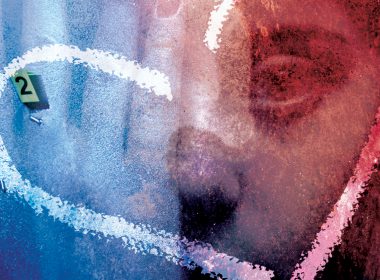Snapshot
- One of the challenges of working as a lawyer is that those who work with traumatised clients are at risk of developing vicarious trauma, also known as secondary traumatic stress.
- Symptoms of secondary traumatic stress may include poor sleep, agitation, frequent headaches and hypervigilance.
- There is a need for a shift in the way firms address the risk of vicarious trauma. These include creating more awareness, offering counselling and welfare checks, and implementing trauma-informed practices.
Vicarious trauma, also referred to as secondary traumatic stress (‘STS’), can develop when a person repeatedly hears about, or is exposed to, the traumatic experiences of another person, or when a person is in frequent close contact with someone who has experienced severe trauma.
Erika Tullberg, an expert on vicarious trauma at New York University’s Child Study Center, defines secondary trauma as ‘a behavioural toxin’. Tullberg claims that a person can be impacted by STS if they work with others suffering from STS and as a consequence they may also develop symptoms of post-traumatic stress disorder (‘PTSD’).
Unsurprisingly, many professionals who work with traumatised clients on a regular basis are at risk of developing STS. For example, healthcare professionals such as doctors, caregivers, psychiatrists, therapists, counsellors and psychologists. As police officers work closely with trauma survivors, they are also vulnerable to the negative impacts of STS.
While there is much focus on the prestige and integrity associated with being a lawyer, the occupational challenges of the profession remain obscure. Due to the nature of their work, many lawyers, especially family, refugee, immigration and criminal lawyers, are often impacted by STS.
Lawyers are required to deal with deeply personal issues of their clients. They are required to step into the client’s shoes and understand their issues. For instance, one of the primary roles of a criminal lawyer is to review evidence associated with often violent and traumatic events. They are exposed to disturbing material in case files that may contain graphic images of a crime scene.
In the course of their work, family lawyers may discuss traumatic incidents involving domestic or family violence with clients and in these situations, lawyers often identify with the feelings and distress of their clients. As part of the indispensable process of fact-finding in legal proceedings, lawyers are often required to ask their clients to provide a detailed account of painful events. While it is not surprising that this is often an arduous experience for the victim, it can also affect the mental health of the lawyers who are responsible for the questioning.
Leading psychologist Charles Figley coined this phenomena as the ‘cost of caring’ and professionals have termed this secondary stress reaction as ‘compassion fatigue’. Compassion fatigue is the psychological and physical effect of helping the traumatised. Studies show that many lawyers resort to consuming alcohol on a regular basis to deal with compassion fatigue and this can lead to long-term issues. If compassion fatigue or ‘second-hand shock’ is not treated appropriately, the person’s condition can deteriorate and result in psychological disorders such as depression.




